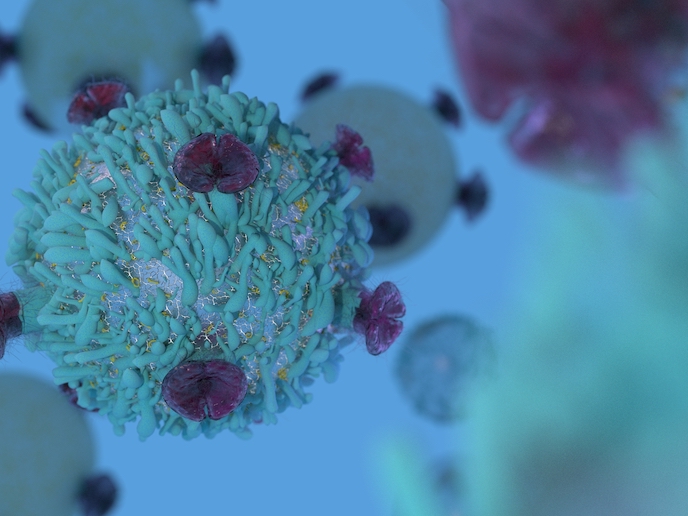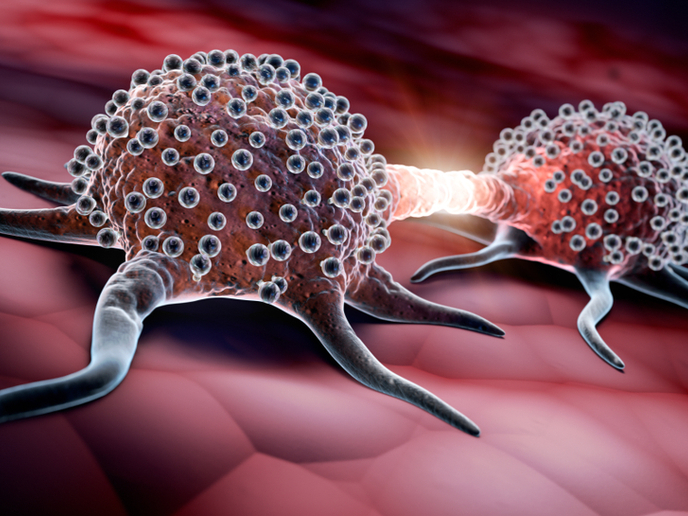Immune cell behaviour could hold key to new treatments
Immunotherapeutic drugs can be an effective weapon in the fight against cancer. They are used to stimulate the body’s immune response, which can be ‘switched off’ by a tumour, and to encourage immune cells to attack cancer cells. “The most successful immunotherapeutic drugs work on immune cells called T-cells,” explains GDCOLCA project coordinator Seth Coffelt, senior research fellow at the University of Glasgow’s Institute of Cancer Sciences, UK. “Their main job is to make sure everything is normal. If they find something abnormal, such as a virus, bacteria or cancer, the T-cells attack it.”
First responder cells
The fact remains however that most patients do not respond to immunotherapy. While many researchers are trying to understand why this is the case, Coffelt decided to take a different tack, and focus on the behaviour of a very specific T-cell. “I wanted to learn more about the gamma/delta T-cell,” he says. “While these tend to be rare, they are really powerful. They are like first responders, arriving at the scene and orchestrating immune reactions.” Coffelt knew from his time studying at the Netherlands Cancer Institute in Amsterdam that while rare, gamma/delta T-cells are abundant in the gut. “When I started my lab here in Glasgow, I wanted to better understand how they behave in respect of colon cancer. This is what led to the GDCOLCA project.” The project, which was undertaken with the support of the Marie Skłodowska-Curie Actions programme, examined the role of gamma/delta T-cells in mice. One of the questions the project sought to answer was the stage of cancer progression at which these cells were most effective. “In other words, are gamma/delta T-cells involved when tumours first form, or at later stages when the cancer spreads?” asks Coffelt. “This question was actually more complex than we first anticipated. This is because immune cells sometimes ‘switch’, and actually begin helping the tumour to spread.” After 2 years of research, the project team found that the answer to this question was ‘both’. “It turns out that gamma/delta T-cells are very important when a colon cell turn cancerous,” he notes. “These T-cells see that, and help to clear these cells away.” If the T-cells miss this, then the tumour will try to push them out.
Boosting immune responses
Although still at an early stage, Coffelt believes that these findings could have important implications. “We know that gamma/delta T-cells are able to kill cancer cells,” he adds. “There is therefore an opportunity to explore how we can help these cells carry out their functions more effectively, for example by adding some kind of drug. There might also be opportunities to explore how boosting gamma/delta T-cell therapies might work for patients who are currently unresponsive to conventional immunotherapy treatments.” As a next step, Coffelt would like to investigate the role of gamma/delta T-cells in human colorectal cancer cases. This could be achieved through analysing patient samples. “We still have lots to learn about gamma/delta cells,” Coffelt continues. “Eventually, it would be really nice to see whether boosting gamma/delta cells in people at risk of colon cancer might inhibit tumours from ever forming. Similarly, if we can somehow work out how to inhibit these immune cells from ‘switching’ (when cells are coerced to help tumours from spreading), this could have a positive impact at a later stage.”
Keywords
GDCOLCA, cancer, T-cell, immunotherapy, cells, tumour, immune, drugs







